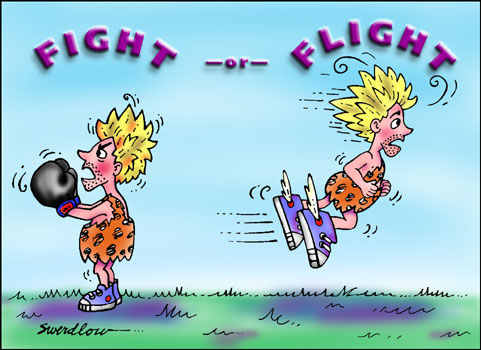____________________________________________________________
“I believe there's a hero in all of us, that keeps us honest, gives us strength, makes us noble, and finally allows us to die with pride, even though sometimes we have to be steady, and give up the thing we want the most. Even our dreams.” –Spiderman 2
__________________________________________________________________
 |
| "Superhero" photo credit: Lehi-ut |
When I was a child I dreamt of having super powers, such as, flying day and night like Peter Pan, casting magic spells like Harry Potter, having a temporal manipulation power like The Matrix and run as fast as the speed of light like Silver Surfer. I know in myself that this will only happen in my dreams, just in my dreams and never in real life :( until one day I found out that being a superhuman with supernatural strength can happen in reality! Thanks to the power of... find it out LATER :)
ACTIVATED SUPERHUMAN
 |
| "Man lifting a car" photocredit: Labspaces.net |
Most of us have probably heard or
experienced superhuman stories during crisis such as, a mom who lifted a car to
save her child who wasn’t actually a body builder and a man who lifted a
crashed helicopter to save his buddy and during fire a father would go beyond
the burning house just to save his family, when chased by a dog you run so fast
that you couldn’t imagine and after riding an extreme ride at the amusement
park it makes you feel giddy.
Have you ever wondered how we
transformed as a superhuman?
Well, behind this incredible and
unnatural powers is the hysterical strength; it is caused by the hormone
epinephrine, which is also known as adrenaline (where adrenaline rush came
from).This hormone is a part of the sympathetic nervous system (SNS), which
allows the body to rapidly respond to a situation. Adrenaline is like a
nitro burst into your car engine. It gives you hotter and faster combustion to
give you more power and lots more speed.
Behind the Super strength
I consulted Bishop for the meaning of Epinephrine and according to him, it is a hormone and neurotransmitter that is secreted by the medulla of the
adrenal glands. Epinephrine is secreted or triggered in certain situations,
mostly in the state of excitement or stress, strong emotions such as fear or
anger may also cause the body to release epinephrine into the bloodstream,
which causes an increase in heart rate, muscle strength, blood pressure, and
sugar metabolism.
"Epinephrine structure" photo credit: Wikipedia
Activation of Super Strength
 |
| "Stress response" photo credit: How stuff works |
To fight or to flight?
The hypothalamus tells the
sympathetic nervous system to kick off, the body speeds up, tenses up and
becomes very alert. If there's a thief at your house, you're going to take action
quickly. Then the sympathetic nervous system sends out impulses to glands and
smooth muscles and tells the adrenal medulla to release epinephrine
(adrenaline) into the bloodstream. This stress hormone causes changes in the
body, including an increase in heart rate and blood pressure, dilates the
pupils, and constricts arterioles in the skin and gastrointestinal tract.
"fight or flight response" video credit: Youtube
Keeping Calm
is Better
 |
| "Calm down" photo credit: wordpress |
Did you ever wonder
why do we only possess strength in short time when confronted with danger? Why
don't we walk around in a constant heightened state of agitation? The answer is
it would kill us. But how?
It is like making
your muscles big and strong takes deliberate and passionate training. Muscles
strengthen over time through use, as in lifting weights and working it out. Our
muscles may possess potential strength that can be tapped when faced with
danger; this can also have dangerous effects. Muscles suddenly used beyond
their limit can tear, and joints can be pulled out of their sockets.
Austrian physician
Hans Selye studied the human reaction to stress and concluded there are three
stages that make up what he termed general adaptation syndrome. The
first stage is the alarm reaction (AR) stage which occurs when you encounter
stress. This stage includes the arousal of your fight-or-flight response
to a stressor. All of your internal alarms are activated and you prepare to
face danger or run away. The next stage is the stage of resistance (SR).
In the SR stage, the human response to danger is in full swing: Your pupils
dilate, your heart rate and respiration go up and your muscles contract. At
this point you are running for your life, lifting a car off another person or
engaged in another above-average activity.
In the case of
seeing a person pinned beneath a car, the stressor is short-lived. The body
begins to relax and returns to its normal state after a few tense minutes.
After the stressor is gone, the parasympathetic system kicks in. This
system plays a role opposite of the sympathetic system. When the
parasympathetic system takes over, heart rate slows again, breathing returns to
normal, muscles relax and nonessential functions (like digestion) immediately
begin again. The hypothalamus, which is responsible for triggering both the
sympathetic response in the face of danger and the parasympathetic response
after the danger has passed, is ultimately responsible for achieving a balance
between both. This balance, the body's normal state, is called homeostasis.
When the body stays
in an excited state for a prolonged period, it enters the final state of
Selye's general adaptation syndrome -- the state of exhaustion (SE).
This stage occurs when response to a stressor has gone on too long. In this
state of hyperarousal, the body's immune system begins to wear down. As a
result, a person will be more susceptible to infections and other illnesses as
the body's defenses have been spent on dealing with a stressor. A person in a
prolonged state of stress may easily catch a cold or have an increased chance
of suffering a heart attack. The state of exhaustion stage is seen most
frequently in cases of prolonged stress, such as workplace stress (Clarck,
2011).
Most people are concerned of what
will happen during an
adrenalized moment, having been a number of life and death situations.
According to MacYoung (2008), there are reactions experienced after adrenaline
rush which are:
Nausea
Muscle pain
Hypomania
Exhaustion
Restless sleep
“We may not all have bodies like a superhero, but it's still nice to know that there's a little superhero in each of us.”-Blessy Contreras
__________________________________________
References:
Bishop,
Michael, Fody, E. and Schoeff, L. (2009). Clinical Chemistry: Techniques,
Principles, Correlations. 6th Ed.
Garbutt, A. (2013). What is
Epinephrine(Adrenaline)?. News Medical.
Green, K. (2013). Epinephrine.
Guidechem.com
King,
Laura. (2008) The Science of Psychology. Student Edition. McGraw-Hill
Higher Education
Layton, J. (2005). How Fear Works. How
Stuff Works.
Marshall,
William J.(2004). Clinical Chemistry. Elsevier Health Sciences
URL
http://www.blog.canacad.ac.jp/bio/BiologyIBHL2/4802.html
http://www.entertainment.howstuffworks.com/arts/circus-arts/adrenaline-strength2.htm
http://www.nononsenseselfdefense.com/adrenal.htm#adrenalin
http://www.science.howstuffworks.com/life/fear2.htm
http://www.udel.edu/chem/C465/senior/fall00/Performance1/epinephrine.htm.html
http://www.youtube.com/watch?v=xI3sVuH7rms









3 comments:
Wow. Nice. Superb! Mehehehe :3
Thanks Joy :)
Nice Bless! :D
Post a Comment